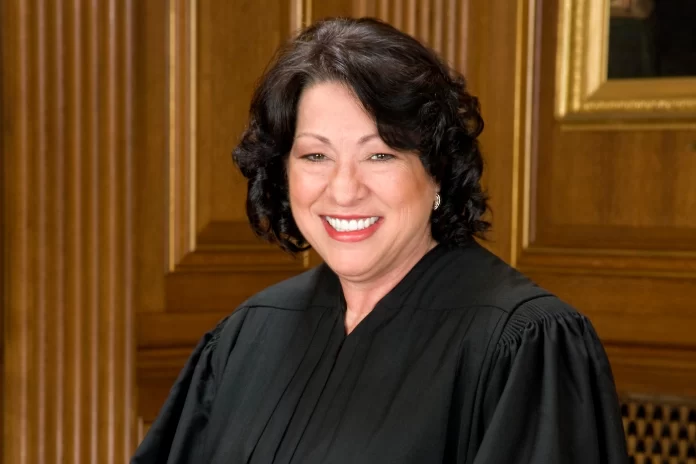Following the conservative majority’s ruling that the county of Maine cannot ban religious institutions from a tuition scheme, the liberal judge Sonia Sotomayor issued a warning that the US Supreme Court is tearing down the wall separating church and state.
“This court continues to tear down the wall of separation between religion and state that the founders labored to construct,” Sonia Sotomayor said in a dissent to the Carson v. Makin decision, which was published on Tuesday. The 1973 Roe v. Wade decision that secured the right to an abortion is among the judgments that progressives worry may be overturned this month. Another verdict on a New York bill that would remove gun restrictions even in the wake of several tragic mass shootings is another.
Sonia Sotomayor Is Very Vocal About Her Beliefs
Supreme Court justices frequently assert that they do not make decisions based on their political convictions, yet few reputable observers believe them.
The chief justice, John Roberts, argued for the conservative ruling in the Maine case. Roberts believed that the tuition program’s statement that private schools were “qualified to receive the funds, so long as they [were]re ‘nonsectarian'” violated the first amendment’s guarantee of “freedom of religion or belief.”
Roberts is a conservative who was chosen by George W. Bush. The chief justice has occasionally emerged as a voice for moderation since Republicans forced three additional judges into the court under Donald Trump. No, not now. Stephen Breyer, one of three liberal judges on the nine-judge bench and the oldest at 83, wrote the primary dissent. Breyer will shortly retire, and Joe Biden’s top choice and the first Black woman to be confirmed to the court, Ketanji Brown Jackson, will take his place.
Sonia Sotomayor was put forth by Barack Obama, just like her fellow leftist Elena Kagan. Her remarks created a commotion. Sotomayor is not having it today, according to Georgia State University political scientist and law professor Antony Michael Kreis.
However, Roberts’ decision served as another proof of a court controlled by conservatives.






